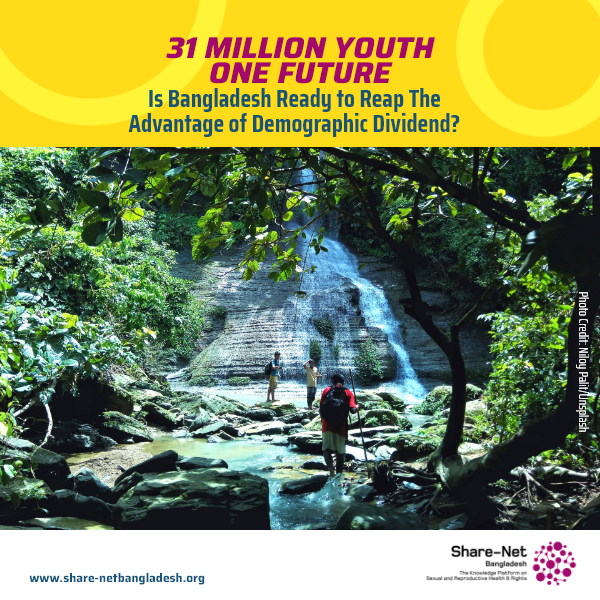31 Million Youth, One Future: Is Bangladesh Ready to Reap The Advantage of Demographic Dividend?
As Bangladesh prepares to mark World Population Day (WPD) on July 11, this year’s theme—“Empowering young people to create the families they want in a fair and hopeful world”—rings especially true for a country where over one-third of the population is under 25.
According to the Population and Housing Census 2022, Bangladesh is home to 31.56 million people aged 15–24, and 45.94 million aged 15–29. These are not just numbers—they represent the future of the country. But for this future to be just and sustainable, young people must be empowered with education, choices, rights, and economic opportunities.
Freedom to Choose: A Basic Right Still Denied
Empowerment means giving young people—especially young women—the ability to decide if, when, and how they want to build a family. Yet in reality, this choice remains out of reach for many. The Bangladesh Demographic and Health Survey (BDHS) 2022 found that:
-
50.7% of girls are married before age 18.
-
16.7% marry before 15.
-
Teenage pregnancy stands at 23.5%.
Such early marriage often results in school dropouts, unplanned pregnancies, and long-term poverty. The data highlights a troubling gap: while the Total Fertility Rate (TFR) is 2.3, the desired rate is only 1.3. Empowerment must begin with delaying marriage and parenthood so that young people can complete education, gain financial stability, and plan their futures.
SRHR Gaps Are Holding Back a Generation
Despite some progress, youth-friendly sexual and reproductive health (SRHR) services remain limited. The contraceptive prevalence rate (CPR) is lowest among girls aged 15–19 (53.9%) and 20–24 (58.3%). Unmet needs for family planning are also highest in these age groups—12.3% and 10.8%, respectively.
Moreover, the BDHS 2022 shows that only 85.5% of girls aged 15–19 participate in decisions regarding family planning. This lack of autonomy leads to unwanted pregnancies, unsafe abortions, and poor maternal health.
The Power of Education and Economic Opportunity
Education is key to breaking the cycle. Girls who remain in school are more likely to delay marriage and have healthier families. Expanding Comprehensive Sexuality Education (CSE) and reaching rural and marginalised communities are critical to making informed choices.
But knowledge isn’t enough without opportunity. Youth unemployment remains high, with 34.26% of those aged 15–24 not in education, employment, or training (NEET). Without financial stability, dreams of creating a family remain distant.
To fix this, skill development, microcredit, vocational training, and social protection policies must be scaled up, especially for young women.
Shared Responsibility, Dignity, and Respect
Creating a fairer world also means breaking gender stereotypes. Family planning and parenting should be shared responsibilities. Empowering boys to be supportive partners is as vital as empowering girls to lead. As the article rightly states, “In a fair Bangladesh, creating a family should be a shared, respectful partnership—not imposed by cultural or economic constraints.”
The Way Forward
Young people must be at the heart of the population, policy, and development planning. Empowerment is not charity—it’s justice. Bangladesh’s future will only be as strong as its commitment to ensuring that every young person can choose the life they want, with dignity, safety, and hope.
Source: The Daily Star


